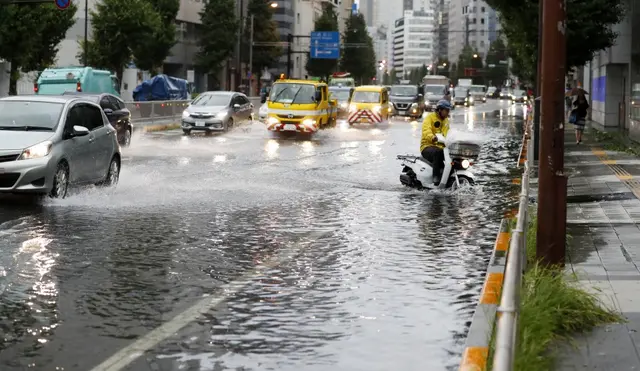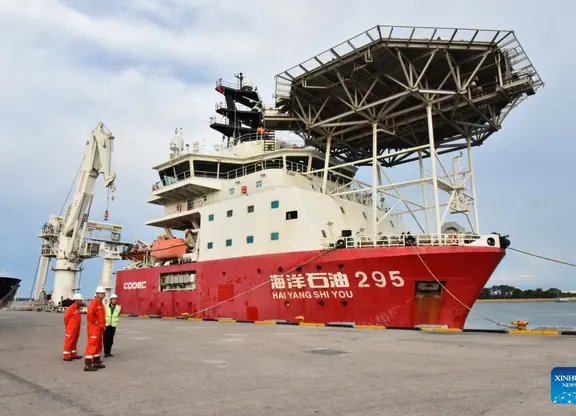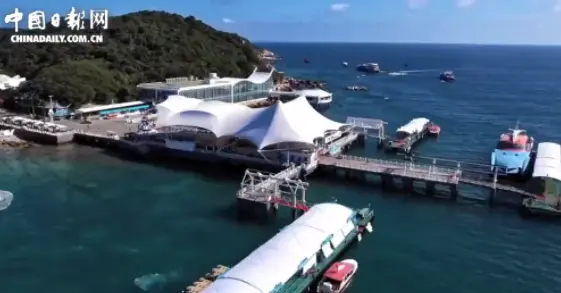By APD writer Alice
A powerful typhoon named Faxai made landfall near Tokyo in the early morning of September 9, injuring more than 30 people and suspending major train services in the metropolitan area, with hundreds of thousands of rush-hour commuters affected at the start of the week.
According to Kyodo News, East Japan Railway Co. suspended all lines in the greater Tokyo area as Typhoon Faxai landed near the city of Chiba shortly before 5 a.m. The company, also known as JR East, is expected to resume most services by around 10 a.m. after inspecting tracks following the passage of the storm.
Ahead of the typhoon's arrival, the train operator announced at September 8’s noon that services for the following day might be canceled given the expected major impact of the storm and the time needed to check safety before restarting operations.
It was the second time for it to announce the likelihood of suspended services before a typhoon hits, after the first doing so on September 30 last year.
More than a dozen people were injured in Tateyama, Chiba prefecture, and its vicinity, and another 10 in Chiba city, while five people were hurt in Kanagawa prefecture and at least five people in Shizuoka prefecture, local authorities said.
A woman in her 20s sustained serious injuries after pillars at a golf practice range toppled over and hit a nearby residence in Ichihara, Chiba Prefecture, they said.
As of 8 a.m., the season's 15th typhoon, one of the strongest typhoons on record to make a landfall in the Kanto region of eastern Japan, was traveling northeast at 30 kilometers per hour some 40 km southeast of the city of Mito, Ibaraki prefecture.
It had an atmospheric pressure of 960 hectopascals at its center and was packing winds of up to 216 kph, according to the Japan Meteorological Agency.
The typhoon is expected to pass through the region and travel over the Pacific off northeastern Japan before noon. The weather agency warned of mudslides and flooding after the heavy rain.
In Chiba and Kanagawa prefectures, some 920,000 households were temporarily deprived of power, according to Tokyo Electric Power Company Holdings Inc.
Some other railway services and subway operations in the metropolitan area were suspended due to the typhoon, although some resumed services later in the morning.
Many flights departing from and arriving at Tokyo's Haneda airport have been cancelled since the September 8 evening.
In the 24 hours through the early September 9 morning, the typhoon brought more than 440 millimeters of rainfall to the city of Izu in Shizuoka prefecture, with as much as 109.0 mm falling in one hour in the early morning.
In the 24 hours through 6 a.m. on September 10, the typhoon is forecast to bring 150 mm of rainfall to northeastern Japan's Tohoku region.
It was the ninth time for a typhoon to make a landfall in Chiba Prefecture since Japan began taking records. The last such landfall was made in August 2016.
(ASIA PACIFIC DAILY)
 简体中文
简体中文






